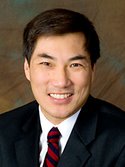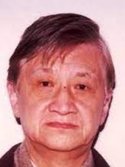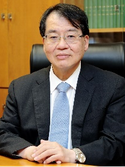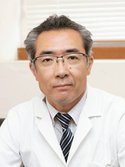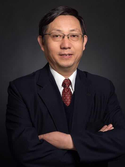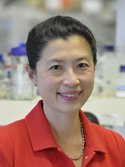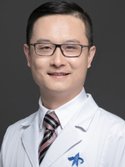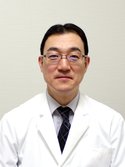-
Home
-
About JCTR
-
Gold Open Access
-
Issues
-
Editorial board
-
Author guidelines
-
Publication fees
-
Online first
-
Special issues
-
News
-
Publication ethics
-
Partners
-
Submit your manuscript
-
Submit your review report
-
Editorial Office
-

This work is licensed under a Creative Commons Attribution-NonCommercial 4.0 International License. ISSN print: 2382-6533 ISSN online: 2424-810X
Clinical research editorial board

Elisavet Stavropoulou
Infectious disease
Internal medicine
Dr Elisavet Stavropoulou is an Internal Medicine and Infectious Disease Specialist. She obtained her diploma in Medicine (2015) as well as a Master of Science in Hygiene and Occupational Health (2021) at Democritus University of Thrace and completed her medical specialty in Internal Medicine and Infectious Diseases at Lausanne University Hospital in Switzerland (2015-2023). She obtained a Doctorate (2023) at the University of Lausanne about the impact of different regimen of antibiotic prophylaxis on surgical site infections. She is currently affiliated to Lausanne University Hospital as a research fellow, Democritus University of Thrace as Teaching Staff for the MSc "Food, Nutrition, Microbiome" and the National Public Health Organisation as a Scientific Advisor to the President for Antimicrobial Resistance and Healthcare Associated Infections and is also member of the Hellenic Task Force Team to combat Antimicrobial Resistance. She is author/co-author of 60 publications (Pubmed and Scopus indexed) in the field of Microbiology and Infectious Diseases
Filter by field:
Sort by name:
Albert Wolkerstorfer practices in Amsterdam, the Netherlands. Wolkerstorfer is rated as an Elite expert by MediFind in the treatment of Vitiligo. His clinical research consists of co-authoring 135 peer reviewed articles and participating in 6 clinical trials in the past 15 years. In particular, he has co-authored 65 articles and participated in 2 clinical trials in the study of Vitiligo.
Alberto Di Martino, MD, Ph.D., is an Associate Professor in Orthopedics at the University of Bologna since 2019. He was an Assistant Professor in Orthopaedics at the University Campus Bio-Medico of Rome. Since 2017, he has been Adjunct Professor in Orthopaedic Surgery at the Sidney Kimmel Medical College of Thomas Jefferson University, Philadelphia (USA). He completed his MD and Ph.D. at the Università Campus Bio-Medico di Roma in Rome, with broad research interests in medical and surgical emergencies in the hip, spine, musculoskeletal oncology, orthopedics, and musculoskeletal disorders. Prof. Di Martino is the author or co-author of more than 200 publications.
His clinical and research activity is directed toward hip surgery, spine diseases and surgery, and osteoncology.
Dr. Alexander Knuth is a Professor of Medicine and Medical Oncology at the University of Zürich, Zürich, Switzerland, and Professor Emeritus since 2013. From 2013 to 2020, he was Chief Executive Officer and Medical Director of the National Center for Cancer Care and Research of the National Public Healthcare Provider Hamad Medical Corporation of the State of Qatar in Doha, Qatar. His research interests are cancers of the gastrointestinal tract, skin cancers, cancer immunology, and cancer immunotherapy.
His pioneering work in cancer immunology led to the discovery of multiple human cancer antigens, including MAGE, the first of the so-called cancer/testis (CT) antigens that have been a primary target of vaccine strategies to date. He also played a pivotal role in the development of peptide-based vaccines and adjuvants, established immune-monitoring techniques, and discovered tumor escape mechanisms.
Allard van der Wal specializes in the pathology of the heart and blood vessels and the skin. He has both clinical and scientific experience in cardiovascular pathology. His main research lines are the pathology of acute cardiac death, atherosclerosis and thrombosis, and tumors of blood vessels. Van der Wal's research is closely linked to patient care.
Dr. Andrea Schlegel is an academic transplant surgeon at the Cleveland Clinic, specializing in liver transplantation and hepatobiliary surgery. Her treatment philosophy is focused on a patient-centric and shared decision-making approach while incorporating the most recent innovative treatment concepts and technologies as she helps patients through their liver transplant journey.
Her research interests include both experimental and clinical research in abdominal surgery, with a focus on organ preservation to improve the safe utilization of organs. She has a lot of experience in designing clinical trials, and she works closely with her colleagues from different specialties, both at Cleveland Clinic and also within her large international network in the field.
Andreas Kremer is a clinical scientist and Professor of Hepatology at the Department of Gastroenterology and Hepatology, University Hospital Zürich. He is Head of Hepatology, Vice President of the Department, and the lead investigator for several clinical trials. He runs a lab group focusing on autoimmune and cholestatic liver disease, liver fibrosis, hepato- and cholangiocellular carcinoma, the gut-liver axis, and extrahepatic manifestations such as pruritus and fatigue.
Dr. Lee received his first faculty appointment in 1994 as an instructor in the Department of Ophthalmology, Neurology, and Neurosurgery at the Baylor College of Medicine in Houston, Texas. He became an Associate Professor there in 1998 and a member of the key clinical faculty in the following year. In 2000, Dr. Lee joined the faculty at the University of Iowa in Iowa City, IA, as an Associate Professor and later a full Professor in the Department of Ophthalmology, Neurology, and Neurosurgery. Dr. Lee is a recipient of the Honor Award, Secretariat Award, and Senior Achievement Award from the American Academy of Ophthalmology. Resident training is a particular interest of Dr. Lee. He has published several papers on teaching and competency testing methods in ophthalmology residency programs. Dr. Lee joined Houston Methodist Hospital and Research Institute in 2009 and is currently Chair of the Blanton Eye Institute at Houston Methodist Hospital and Professor of Ophthalmology, Neurology, and Neurosurgery at the Weill Cornell Medical College.

Bhagavatula Moorthy
Acute lung injury (ALI)/ARDS
Bronchopulmonary dysplasia (BPD)
Cytochrome P450 regulation
Mechanisms of hyperoxic lung injury
Dr. Bhagavatula Moorthy, joined the Department of Pharmacology at Baylor College of Medicine as a research associate, and was a junior faculty member at Baylor in the early 1990s. He joined the section of Neonatology in the Department of Pediatrics at Baylor in 1995. Currently, he is the Director of Neonatology Research Program at Baylor. He earned tenure in 2005, and was promoted to full professor with tenure in 2011. A major goal of the research conducted in Dr. Moorthy’s laboratory is to investigate the mechanisms of regulation of cytochromes P450 (CYP) enzymes by hyperoxia, in relation to hyperoxic lung injury and inflammation. He has been working in the general area of cytochrome P450 and drug metabolism for the past 37 years. He has published extensively in the area of P450, drug metabolism, and oxidative stress. Thus far, he has published over 130 peer-reviewed research papers.
Bote G. Bruinsma is from Harvard University and the Department of Surgery. His research topics are liver surgery, liver diseases, liver transplantation, hepatocellular carcinoma, biliary tract diseases, liver cirrhosis, tissue engineering, and transplantation.
Brigitte Vollmar graduated from the Bernhard-Strigel-Gymnasium in Memmingen in 1981. She then studied chemistry at the University of Erlangen-Nuremberg in 1981–82. She then moved to the Ludwig Maximilian University of Munich and studied human medicine there from 1982 to 1988. From 1988 to 1990, she was an intern doctor at the Surgical Clinic and Polyclinic, Downtown Clinic, and received her medical license in 1990. In the same year, she did a research stay at the Department of Anesthesiology, College of Medicine at the University of Arizona. She then became a scholarship holder of the Dr. Johannes Heidenhain Foundation, and in 1991, she received her M.D. at the Institute for Surgical Research at the Ludwig Maximilians University in Munich. Her work focuses on experimental surgery, regenerative medicine, and tissue engineering. She specializes in research into organ damage and repair, particularly of the liver, pancreas, and brain. Another area of research is molecular imaging of small animals.

Daniele Botticelli
Bone volume augmentation
Dental implant
Histology
Oral surgery
Sinus floor elevation
Dr. Daniele Botticelli is an academic researcher from the United States Army Armament Research, Development and Engineering Center. He has contributed to research on topics such as osseointegration and implants. He has an h-index of 36 and has co-authored 178 publications, receiving 5090 citations. Previous affiliations of Dr. Botticelli include the University of Gothenburg and Sao Paulo State University.
Das Undurti is a physician and scientist. He is involved in translational research in cancer, diabetes mellitus, lupus, coronary heart disease, atherosclerosis, sepsis, and radiation protection. His studies led to a deeper understanding of the role of essential fatty acids (EFAs) and their metabolites, prostaglandins, leukotrienes, thromboxanes, lipoxins, resolvins, protectins, and maresins, in several diseases that have the potential to be translated into newer therapeutic strategies. He has published more than 550 manuscripts in international journals and is an editor of three journals. He has published four books, obtained five US patents, and edited two books on autism. He has promoted 16 PhD students and supervised many medical doctor (internal medicine) students.
Dr Elisavet Stavropoulou is an Internal Medicine and Infectious Disease Specialist. She obtained her diploma in Medicine (2015) as well as a Master of Science in Hygiene and Occupational Health (2021) at Democritus University of Thrace and completed her medical specialty in Internal Medicine and Infectious Diseases at Lausanne University Hospital in Switzerland (2015-2023). She obtained a Doctorate (2023) at the University of Lausanne about the impact of different regimen of antibiotic prophylaxis on surgical site infections. She is currently affiliated to Lausanne University Hospital as a research fellow, Democritus University of Thrace as Teaching Staff for the MSc "Food, Nutrition, Microbiome" and the National Public Health Organisation as a Scientific Advisor to the President for Antimicrobial Resistance and Healthcare Associated Infections and is also member of the Hellenic Task Force Team to combat Antimicrobial Resistance. She is author/co-author of 60 publications (Pubmed and Scopus indexed) in the field of Microbiology and Infectious Diseases

Emerito Carlos Rodríguez-Merch
Ankle
Hemophilia
Knee
Musculoskeletal diseases
Orthopedic surgery
Osteoarthritis
E. Carlos Rodriguez-Merchan is a Consultant Orthopaedic Surgeon (Emeritus) at La Paz University Hospital of Madrid, Spain, and at the Osteoarticular Surgery Research, La Paz Hospital Institute for Health Research – IdiPAZ (La Paz University Hospital – Autonomous University of Madrid), Madrid, Spain. He has an extensive background in orthopaedic surgery. Consequently, he is the author of numerous peer-reviewed publications on orthopaedic surgery. He serves on the Editorial Board of several journals. He is also the editor of several books related to orthopaedic surgery.
Enrico Lopriore is a professor of neonatology and fetal medicine and head of the Neonatal Intensive Care Unit at the Leiden University Medical Center (LUMC).
Erik Schadde, MD, FACS, FEBS (HPB), trained in general surgery in Boston, in transplantation at the University of Wisconsin-Madison, was an attending in transplant surgery at the University of Kansas, Kansas City, and became the head of liver transplantation at Saint Louis University Medical Center in 2009. To develop his clinical and research interests in complex liver surgery involving the induction of liver regeneration, Schadde moved to the Swiss HPB center of the University of Zurich in 2010 as a consultant surgeon and rapidly became the head of the HPB fellowship program there.

Fausto Catena
Colorectal surgery
Emergency surgery
General surgery
Minimally invasive surgery
Surgical education
Prof. Dr. Fausto Catena is currently the Chief of the Department of Emergency Surgery at Parma University Hospital. He graduated in Medicine and Surgery from the University of Bologna, Italy. He is also the General Secretary of the World Society of Emergency Surgery (WSES) and Director of the WSES Educational Program.
Fei Sun is from the Department of Otolaryngology—Head and Neck Surgery, Xijing Hospital, Fourth Military Medical University, Xi'an, China. Her research topics are otolaryngology and surgery.
Dr. Ferran Cuenca-Martínez, PT, PhD, is an assistant professor in the Department of Physiotherapy, University of Valencia, Spain, teaching statistics and methodology related to health research and respiratory pathophysiology. His field of study is the management and approach to chronic musculoskeletal pain. He also has a line of research regarding the basic and clinical effects of movement representation strategies (motor imagery and action observation training) applied to the treatment of patients with persistent pain, as well as other clinical populations such as patients with respiratory disorders. He has published more than 100 papers in peer-reviewed journals.
Gaetano Isola is an Associate Professor of Periodontology at the School of Dentistry at the University of Catania, Italy, and qualified in Dentistry in 2009 at the University of Messina, Italy. Ph.D. in “Physiopathology of the Stomatognathic Apparatus and Dental Materials” at the University of Turin, Turin, Italy. Dr. Isola is an advisor on several research projects and a speaker at national and international conferences on periodontology and oral surgery. He is an author of over 150 national and international peer-reviewed publications. His main research interests focus on the clinical, biological, and pharmacological aspects of periodontitis and the relationship between oral health and systemic health.
Prof. Santulli's lab studies the functional role of intracellular calcium and non-coding RNAs in the pathophysiology of cardiovascular and metabolic disorders.

Georgios Antonios Margonis
Biliary tract diseases
Cancer
Hepatobiliary surgery
Hepatocellular Carcinoma
Liver surgery
Metastasis
Pancreatic diseases
Tumors
Georgios Antonios Margonis is a senior scientist affiliated with the Department of Surgery at the Memorial Sloan Kettering Cancer Center (MSKCC) and the Massachusetts Institute of Technology (MIT). He obtained his MD and PhD degrees from the University of Athens and moved to the United States in 2014. Since then, he has worked at Harvard University and Johns Hopkins University, prior to working at MSKCC and MIT. His clinical and research interests include cancer, tumors, hepatocellular carcinoma, metastasis, biliary tract diseases, hepatobiliary surgery, pancreatic diseases, liver surgery, hepato-pancreato-biliary diseases, and soft tissue sarcomas. In particular, his work focuses on the use of biomarkers to guide surgical or medical treatment. More recently, he has collaborated with a group from MIT to conduct research at the crossroads of artificial intelligence and oncology. He has authored or co-authored more than 170 papers and has received several national and international awards. Notable awards include the IHPBA Kenneth Warren Award and the Johns Hopkins University Paul Ehrlich Award for outstanding research achievements.

Giuseppe Lanza
Cerebrovascular diseases
Dementia
Neurosonology
Non-invasive brain stimulation
Sleep disorders
Giuseppe Lanza, MD, PhD, is an Associate Professor of Dean of Applied Medical Sciences Techniques at the University of Catania (Italy). After graduating with honors in Medicine, he trained at the School of Neurology and got an international PhD. As a Clinical Research Fellow, he was trained further in clinical neurophysiology at Newcastle University (UK). More recently, he has obtained a Master of Science in Clinical Research and the National Scientific Qualification as a Full Professor. He is also a consultant neurologist at the Oasi Research Institute-IRCCS in Troina (Italy), a WHO Collaborating Center, where he also coordinates a research unit. He has published many full articles and reviews in peer-reviewed journals. As a peer reviewer, he has helped many journals review a lot of manuscripts. With his expertise in clinical activity, he has published 145 papers in peer-reviewed journals (H-index Scopus 36). He has authored more than 200 scientific publications and serves as editor and reviewer for several international journals.

Giuseppe Murdaca
Allergies
Atherosclerosis
Autoimmunity
Immune-mediated diseases
Immunodeficiency
Neuroendocrine-immunology
Pharmacogenomics
Prof. Giuseppe Murdaca received his PhD in Science and Space Engineering at the University of Genova (Italy) from 2000 to 2003. He is an assistant professor at the Department of Internal Medicine of the University of Genova (Italy).
His research has included immunodeficiency, autoimmunity, neuroendocrino-immunology, and pharmacogenomics, and he has received several awards and honors based on this research and fellowship training, including a prize for young researchers in the study, assigned by the GILS, with the following motivation: "Standardization of a method to assess impairment by skinfold thickness skin", delivered on the occasion of "Day VII Italian to fight Scleroderma" (Milan, 17/3/2001). He also won the award for one of the three best oral presentations at the Ninth Congress of the Inter-SIMI Piemonte and Valle D'Aosta, Liguria (Genoa, 06.17.2004): Murdaca G., Fenoglio D., M. Setti, Brenci S., Villa R., Pontali E., A. Kunkl, Indiveri F., Puppo F. "Generation of CD4 + lines specific for Pneumocystis carinii and Candida albicans obtained from HIV + patients. Meaning of the coexpression of IFN-g and IL-4". He serves as an editorial member and expert reviewer for several reputed journals.
Dr. Giuseppe Nasso, MD, PhD, Department of Cardiac Surgery, Anthea Hospital, Italy. He specializes in multiple coronary artery bypass grafts, heart valve treatment, and minimally invasive surgery. He is the creator of patents in the field of cardiac surgery, an authoritative associate editor of scientific journals, and a highly competent principal investigator with extensive experience in research and cardiac surgery. His research interests involve participation in research groups with national and international collaborations, specifically the "RADIAL PROJECT." This project has led to several scientific publications related to coronary artery bypass surgery and the comparison of radial artery grafts with saphenous vein grafts. Additionally, he's been involved in various clinical trials related to cardiac surgery.

Giuseppe Nigri
Abdominal wall surgery
Colorectal surgery
Gastric surgery
HPB surgery
Minimally invasive surgery
Prof. Giuseppe Nigri is a full professor of Medical and Surgical Sciences and Translational Medicine at the Sapienza University of Roma. His major interests are surgical oncology and minimally invasive surgery. He is USMLE/ECFMG-certified. He trained in Italy and the USA (Clinical and Research Fellow and Resident in General Surgery) at the Massachusetts General Hospital, Harvard Medical School, Boston, MA. He is a Fellow of the American College of Surgeons, a Fellow of the Royal College of Surgeons, and a Fellow of the Society of Surgical Oncology. He has been a member of the International Relations Committee and chair of the Scholar Selection Subcommittee of the American College of Surgeons. He is also a fellow, member, and committee member of SAGES, SSAT, SSO, and the International Society of Surgery (ISS_SIC). He has authored or co-authored more than 300 international scientific publications. He is a member of numerous prestigious editorial boards.
Prof. Giustino Varrassi graduated cum laude in Medicine in Roma (Italy) in 1973, where he started his academic career in the Department of Anesthesiology and Intensive Care. Four years later, he moved to the University of L’Aquila (Italy), where in 1985, he became Chairman of the Anesthesiology and Pain Medicine Department. In L’Aquila, he has created all the Academic Anesthesia and Pain Medicine programs, including the residency program. At this moment, he is President of the Paolo Procacci Foundation, an NGO based in Roma, and is involved in research and education on Pain Medicine.
At the beginning of his professional life, his research interests were mainly in Obstetric Anesthesia and Analgesia. From the beginning of the Nineties, he was mainly attracted by research on Pain Medicine, especially inflammatory pain. He has also developed an interest in the social impact of pain (SIP) at any level. On the last topic, in 2010, he created a European annual event of awareness, initially organized inside the European Parliament.

Guglielmina Pepe
Determinants of inherited aortic
Inherited connective tissue diseases
Multivessel aneurisms
Guglielmina Pepe, MD, Ph.D., runs a hereditary connective tissue disease and syndromic and non-syndromic hereditary aneurysms/dissection service at Villa Donatello, Sesto Fiorentino, Florence, Italy. Formerly Associate Professor of Clinical Pathology at the University of Florence, Coordinator of rare vascular pathologies for the Tuscany Region, Italy, Member of VASCERN, the European group of rare vascular pathologies. She graduated with an MD from the Second School of Medicine of the University of Naples, Italy. She did postgraduate hematology training at the University of Pavia and Naples, Italy, and at the Clinical Hematology Branch, NIH, Bethesda, MD, USA, and inherited connective tissue diseases training at Rutgers Medical School, UMDNJ, NJ, USA. Her research interests are the determinants of inherited aortic and multivessel aneurysms and inherited connective tissue diseases. In particular, she is interested in the prevention, early detection, gene detection and involvement, molecular mechanisms, molecular and clinical biomarkers, and genotype-phenotype correlation of these disorders. Her research spans from basic science to clinical and molecular investigation. She has published over 140 scientific papers or book chapters.
Prof. Gundu Hirisave Rama Rao is an Indian scientist, entrepreneur, and Emeritus Professor at the Academic Health Center, University of Minnesota. He is the founder of the South Asian Society on Atherosclerosis and Thrombosis and AayuSmart LLC, an IT-supported web-based health management company. He has been actively involved in creating awareness, developing educational and preventive programs to prevent non-communicable diseases such as hypertension, obesity, metabolic diseases, type 2 diabetes, vascular diseases, and stroke.
Heinz Kölbl, M.D., DR h.c., is a Professor of Obstetrics and Gynaecology and Chairman of the Division of Gynaecology and Gynecological Oncology, Department of Obstetrics and Gynaecology Medical University of Vienna, Austria. He passed various medical education programs in internal medicine, general surgery, nephrology, oncology, neurology, and neonatology. His medical education in obstetrics and gynecology started in 1983 at the former 2nd Department of Obstetrics and Gynecology, University (Wertheim Clinic) of Vienna. His research interests were all forms of gynaecologic surgery, urogynaecology, and gynaecologic oncology. He is an Associate Editor and Reviewer of various international journals, and his scientific work comprises over 578 papers (> 330 Medline Citations Koelbl-H or Kolbl-H - Search Results - PubMed (nih.gov)) published in standard and top journals, seven books so far, and various chapters in the German and Anglo-American literature (25 Academia.edu). He has performed many clinical and nonclinical studies in the fields of Gynaecology Oncology and Urogynecology. (H-index Scopus 52). Since 2016, Prof. Kölbl has been acting as coordinator of the Comprehensive Cancer Center at the Medical University of Vienna. In 2017, Prof. Kölbl will host the 20th Congress of the European Society of Gynaecological Oncology in Vienna. Prof. Kölbl has organized many national and international meetings in Vienna. Prof. Kölbl is the forthcoming Chairman of the Department of Gynecology at Shangdong University in China and a Member of the Editorial Board of the Royal Board of Medicine UK.
Dr. Herbert Simoes is an Exercise Physiologist, primarily focused on researching the anti-aging effects of physical exercise in master athletes. He has also conducted studies related to blood glucose and blood pressure control through physical exercise in individuals with diabetes and hypertension, as well as comparisons of functional evaluation methods in athletes and non-athletes within his main research line, "Physical Activity, Exercise, and Human Performance."
He earned both a master's and a doctoral degree in Physiological Sciences from the Federal University of São Carlos, Brazil, and pursued his doctoral training at the Laboratory of Food, Nutrition, and Exercise Sciences at Florida State University. Additionally, he completed post-doctoral research at the University of Miami, Miller School of Medicine, with a focus on Clinical Research.
Dr. Simoes has held the position of Chair and is currently a Professor in the Master's and Ph.D. programs in Physical Education at the Catholic University of Brasília, Brazil. With 278 articles published in indexed journals, he is recognized as a CNPq PQ1 Research Productivity Scholar.
Beyond his academic achievements, Dr. Simoes has been an athlete since the age of 14, achieving the titles of World Master Champion in the 110m and 400m Hurdles, and he currently holds the South American Master Record. With over 30 years of experience as an athlete and coach, he has also contributed to youth and adolescent life skills development programs through sports as a Consultant/Trainer for the United Nations.

Hidekazu Suzuki
Functional Gastrointestinal Disorders (FGIDs)
Gastroesophageal reflux disease (GERD)
Helicobacter pylori infection
Prof. Hidekazu Suzuki is a professor at the Department of Gastroenterology, Department of Internal Medicine, School of Medicine, Tokai University. He became the director of the Clinical Training Department at Tokai University Hospital in 2019. He became the director of the Keio University School of Medicine Specialist Training Center in 2017. He has devoted his research to helicobacter pylori, gastroenterology, endocrinology, and immunology.
Dr. Hiroyuki Sakurai graduated from the Faculty of Medicine at the University of Yamanashi in Japan in 1994. He received his medical degree and doctorate from the University of Yamanashi. He completed his residency in general surgery and a clinical fellowship in thoracic surgery at the National Cancer Center Hospital, Tokyo (1998–2003). He also served as an attending surgeon (thoracic surgery) from 2009 to 2016. Since October 2016, he has been serving as a professor in the Division of Respiratory Surgery at Nihon University School of Medicine, Tokyo, Japan.
Ibrahim Ince is from Translational Medicine and Clinical Pharmacology Data Sciences, Boehringer Ingelheim Pharma GmbH & Co. KG. His research topics are pharmacology and pharmacometrics.
Previously to joining the Department of Material Science and Engineering as a Professor of Biomaterials, Prof. Ipsita Roy was a professor at the School of Life Sciences, University of Westminster, London. She is also a visiting professor at the National Heart and Lung Institute, Faculty of Medicine, Imperial College London. She was at the University of Westminster from 2000 until August 2019, where she was the Research Director of the School of Life Sciences and led the Applied Biotechnology Research Group.
She received the prestigious Inlaks Scholarship and the Overseas Research Students Award to study for her PhD at the University of Cambridge. During her time at Cambridge, she also received the Churchill College Scholarship, the Lundgren Scholarship, the Leche Trust Scholarship, and the Cambridge University Philosophical Society Fellowship Award. Her PhD at the Department of Biochemistry was on a B12-dependent enzyme, methylmalonyl-CoA mutase. Her postdoctoral work was at the University of Minnesota, USA, at the Bioprocess Technology Institute, where she worked on fatty acid biosynthesis.
She has published over 100 papers in high-impact-factor journals, such as Biomaterials, Biomacromolecules, Journal of the Royal Society Interface, Acta Biomaterialia, and ACS Applied Materials Interfaces, and has presented her work at numerous international conferences.
Dr. Irami Araújo-Filho graduated with a doctorate in Health Sciences from the Federal University of Rio Grande do Norte (2007) and a post-doctoral degree in Health Sciences from UFRN (2013), in addition to a Ph.D. from the University of Sorbonne/Paris Diderot/Experimental Surgery (2017/2018). He is currently Associate Professor IV of the Discipline of Operative Technique in the Department of Surgery at the Federal University of Rio Grande do Norte. He has experience in the area of medicine, with an emphasis on general surgery, gastroenterology, and oncology, acting mainly in the following lines of research: infection in surgery, intercurrent factors in wound healing, biodistribution of radionuclides, experimental models of osteoporosis, intestinal ischemia and reperfusion and solid organs, experimental model of bariatric surgery.
Jian-jun Li, Chief Physician. Former Deputy of the Coronary Heart Disease Center, Deputy Director of the Internal Medicine Management Committee, Director of the Dyslipidemia and Cardiovascular Disease Diagnosis and Treatment Center, and Director of Ward 51. He was formerly a member of the Expert Committee of the National Cardiovascular Center and is now the Executive Director of the International Atherosclerosis China Chapter, a member of the European and American Society of Cardiovascular Diseases (FESC/FACC), and a board member of the Asia Pacific Alliance for Metabolic and Cardiovascular Diseases. He is committed to the clinical diagnosis and pathogenesis of dyslipidemia and coronary heart disease and has completed more than 20 research projects, including national and provincial funds.
Jian-Hong Zhong, MD, Ph.D., is a surgeon at the Department of Hepatobiliary Surgery of Guangxi Medical University Cancer Hospital, China. He completed his clinical research training at Guangxi Medical University Cancer Hospital and basic research training at the University of Illinois at Chicago. With broad research interests in hepatobiliary tract cancer and a major focus on hepatocellular carcinoma, he has published many full articles and reviews in peer-reviewed journals. As a peer reviewer, he has helped many journals review a lot of manuscripts. With his expertise in basic and clinical research on hepatocellular carcinoma, he has established a series of platforms for preclinical evaluation of the diagnostics and therapeutics of hepatocellular carcinoma and therapeutic modalities for patients with hepatocellular carcinoma.
Dr. Wang Jitao is the deputy director of the Hebei Provincial Key Laboratory of Liver Cirrhosis and Portal Hypertension. He graduated from Southeast University School of Medicine with a doctorate degree. His scientific interests are basic and clinical translational research on liver cancer and cirrhosis. He has published more than 50 SCI papers, including Journal of Hepatology, Gut, Clinical Gastroenterology and Hepatology, etc. He was fund by the Provincial Natural Science and Provincial Key R&D Plans, and won the prize of the Hebei Province Science and Technology Progress Award and the Hebei Province Medical Science and Technology Progress Award.
Dr. Ji-Ye Yin is a professor at the Institute of Clinical Pharmacology, Xiangya Hospital, Central South University, and the vice director of the Hunan Key Laboratory of Pharmacogenetics. He completed his doctoral degree in the Department of Pharmacy, Central South University, China (2005.9–2011.12). He has published over 200 peer-reviewed articles and eight books. Professor Yin’s group focuses on Personalized Medicine, Clinical Pharmacology, and Pharmacogenomics. He was awarded the CNPHARS-SEVIER Young Investigator Award in Pharmacology. His research was supported by more than 20 foundations, including the Natural Science Foundation in China and the Distinguished Young Science Foundation from Hunan Province.

John Francis Mayberry
achalasia
coeliac disease
Epidemiology
inflammatory bowel disease
Public health
Screening
Prof. John Francis Mayberry is a practicing physician and gastroenterologist in the private sector and was a consultant within the NHS for 25 years. His interests have been in inflammatory bowel disease, coeliac disease, oesophageal disorders, peptic ulcer disease, and colorectal cancer. He is also experienced in diagnostic and therapeutic endoscopy.
In addition, he led a research group for a similar period. Their main interests have been in ethnic minority health care, better patient information, and the aetiology of chronic gastrointestinal disease.
He was an editor of the Postgraduate Medical Journal and is on the editorial board of a number of journals. This has given him an interest in the ongoing education of doctors, clinical audits, and research fraud.
His law degrees and experience as a barrister helped him to crystallise clinical and research expertise into the setting of being an expert in clinical disputes, negligence, and insurance-related problems.
Prof. Kai Xiao received his PhD in Pharmacology and Toxicology from Sichuan University in 2009. He completed his postdoctoral training and was then appointed as an Assistant Project Scientist at the University of California, Davis. Since 2014, he has been a full professor at the Precision Medicine Center, West China Hospital, Sichuan University, China. He has published over 80 peer-reviewed papers in internationally renowned journals. His research expertise includes cancer pharmacology, targeted drug delivery, and precision oncology. His current research interests mainly focus on the study of tumor evolution, anti-cancer drug resistance, and the discovery of new targets using clinically relevant tumor organoid and PDX models, as well as the development of smart biomaterials for precision delivery of anti-cancer drugs and genes.

Kathleen M. Sakamoto
Genomics
bone marrow failure
CML
Diamond Blackfan Anemia
pediatric leukemia
Signaling Pathways
targeted therapies
Dr. Kathleen Sakamoto received her B.A. from Williams College, her M.D. from University of Cincinnati College of Medicine, and her Ph.D. from California Institute of Technology. She was a Pediatric resident and Hematology/Oncology fellow at Children’s Hospital of Los Angeles. She did her postdoctoral research fellowship at UCLA and became Assistant Professor in the Department of Pediatrics, Division of Hematology/Oncology. She was Division Chief of Pediatric Hematology/Oncology at UCLA and at Stanford University. She is currently the Shelagh Galligan Endowed Professor at Stanford University and is PI of an NIH R25 Hematology program for underrepresented students and the Hematology PI for the NIDDK U2C/TL1 program. Her research focuses on signaling pathways and targeted therapies for pediatric acute leukemias and bone marrow failure syndrome, Diamond Blackfan Anemia. Her laboratory is also studying the genomic landscape of pediatric CML.
Dr. Lance Dworkin conducts laboratory research on the mechanisms of progressive kidney failure and its prevention. He is also a clinical investigator and was the study chair for the CORAL trial, a large, multicentered, and randomized clinical trial funded by NHLBI that compared outcomes in patients with atherosclerotic renal artery stenosis (ARAS) treated medically with those who also receive stent revascularization. The results of the CORAL trial were published in 2014 in the New England Journal of Medicine.
Dr. Dworkin has published over 100 articles on a variety of topics in kidney disease and hypertension, including mechanisms of kidney inflammation and fibrosis and the outcomes and therapy of patients with ARAS. He has also authored more than 50 book chapters and review articles focusing on topics such as renal microcirculation, glomerular hemodynamics in health and disease, as well as mechanisms of acute and chronic kidney injury.

Lei Cheng
Allergen immunotherapy
Allergic rhinitis
Nasal polyps
Noncoding RNA
Probiotics
SNPs
Tinnitus
Prof. Lei Cheng works at the Department of Otorhinolaryngology & Clinical Allergy Center at the First Affiliated Hospital and the International Centre for Allergy Research, Nanjing Medical University, Nanjing, China. His main research directions are as follows: susceptibility gene of allergic rhinitis and their interaction with environmental factors, immunoregulatory function of probiotics and their mechanism of action in the prevention and treatment of allergic rhinitis, clinical pathology and immunological mechanism of non-allergic rhinitis, chronic rhinosinusitis, and nasal polyps, and functional nasal endoscopic sinus surgery minimally invasive technology.
Lieuwe Bos, Ph.D., focuses on precision medicine approaches to the treatment of lung injury due to inflammation and infection. He uses non-invasive diagnostic tools to classify patients into subphenotypes and target the subphenotypes with specific treatments

Linda Cox
Dermatology
Immunology
Allergy
Asthma
Biologics in the treatment of allergic conditions
Conjunctivits
Food allergy
Internal medicine
Rinitis
Sinusitis
Dr. Linda Cox is an allergist in solo private practice in Fort Lauderdale and a clinical associate professor of medicine at Nova Southeastern University. Dr. Cox attended medical school at Northwestern University in Chicago and completed her fellowship in allergy and immunology at the National Jewish Center in Colorado. She is a member of the American Academy of Allergy Asthma & Immunology’s (AAAAI) Board of Directors and began her term as President of the American Academy of Allergy Asthma & Immunology on February 25, 2013. She has promoted standardization of allergy skin testing and allergen immunotherapy practice through the work of the JTFPP and IT/AD/ST, which resulted in the development of standardized immunotherapy, skin tests, instructions, and consent forms. She is currently co-chair of the WAO Immunotherapy and Immunomodulator Committee.
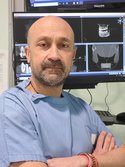
Luca Testarelli
3D in dentistry
Aesthetic dentistry
Clinical dentistry
Dental caries
Dental materials
Endodontics
Esthetic dentistry
Implantology
Oral surgery
Restorative dentistry
Professor Testarelli is an Associate at the 1st Faculty of Medicine and Surgery of the University of Rome “La Sapienza” since 2006 and has been a Dentist in the Dental Clinic of Policlinico Umberto I’s Hospital of Rome since 2011. He completed a Ph.D. with the highest marks at the University of Rome “La Sapienza” in 2004 and obtained a Specialization Diploma in Orthognathodontics at the University of L’Aquila in 2008. Professor Testarelli is a member of several scientific national and international societies, particularly the European Society of Endodontology (ESE), and is an Active member of the Accademia Italiana di Endodonzia (AIE) and the Società Italiana di Odontoiatria Conservatrice (S.I.D.O.C.). He also serves as a member of several editorial boards for dental scientific journals. Additionally, he holds positions as Professor of Dental Restorative and Endodontics at the School of Dentistry in Sapienza University of Rome, Professor of Oral Care in the School of Dental Hygienist in Sapienza University of Rome, and Professor of PhD Dentistry in Sapienza University of Rome.

Mahboob Alam
Acute myocardial infarction
Coronary artery disease
Hypertrophic obstructive cardiomyopathy
Interventional cardiology
Ischemic heart disease
Percutaneous coronary and peripheral intervention
Peripheral arterial disease
Valvular heart disease
Dr. Mahboob Alam has been working at Baylor College of Medicine as an Associate Professor in the Department of Medicine, Section of Cardiology, since 2012. Dr. Alam is a Fellow of the American College of Cardiology (FACC) and a Fellow of the Society of Cardiac Angiography and Interventions (FSCAI).
As an interventional cardiologist, Dr. Alam focuses on the management of coronary and peripheral artery disease. He is actively involved in taking care of patients with high-risk coronary artery disease requiring advanced mechanical circulatory support, including cardiogenic shock, complex anatomy, including chronic total occlusions, and heavily calcified plaques requiring coronary atherectomy, intravascular lithotripsy, or mechanical thrombectomy.
Dr. Alam is involved in various multicenter clinical trials, enrolling patients at Baylor St. Luke's Medical Center, Houston, TX. Other interests include primary and secondary prevention of coronary artery disease, hypertrophic cardiomyopathy, and thromboembolic pulmonary arterial diseases.
When not providing clinical care, Dr. Alam dedicates his time to clinical research and has been an active voting member on various committees of the American College of Cardiology (ACC) and the Society of Cardiac Angiography and Interventions (SCAI).
Prof. Marc de Smet is the former head of the Department of Ophthalmology at the University of Amsterdam, the founder and head of MIOS sa, Lausanne, Switzerland, and the CMO – Preceyes bv, an ophthalmic robotics company. His research topics are ocular inflammation, ocular pharmacology, ocular imaging (retinal and inflammatory disorders), retinal surgery, and robotics. He has spearheaded the development of ocriplasmin for ophthalmic applications (patent holder) and the use of intraocular methotrexate for ocular lymphoma. He is one of the first individuals to use transverse OCT. He initiated the development of the Preceyes robot for eye surgery, the first robot ever to perform high-precision intraocular surgery.
Prof. Marc Jeschke has world-renowned expertise in the field of translational research. He is a research leader with a proven ability to attract funding and grants from various national programs and agencies to advance innovative medical care in burns. Under his direction since 2010, the Ross Tilley Burn Centre (RTBC) at Sunnybrook Health Sciences Centre has become a leading surgical and burn care institution in North America. Prior to being the Director of the RTBC, Dr. Jeschke held faculty positions at the University of Texas Medical Branch and Shriners Hospital for Children. In addition to his work as a surgeon, he coordinated research activities with a focus on increasing productivity and obtaining grants. Dr. Jeschke became an MD in Germany, moved to the United States, and obtained a Master of Medical Science degree at the University of Texas. He then returned to Germany to complete his PhD (Habilitation) in Experimental Surgery at the University of Regensburg in Bavaria.
Dr. Marc Jean Berna is the CEO of Hôpitaux Robert Schuman. Dr. Berna has special clinical interests in interventional endoscopy, advanced resection techniques (EMR, ESD), clinical pancreatology, gastrointestinal oncology, and IBD. Current research projects include personalised treatment approaches in gastrointestinal cancer, signal transduction in the pancreas, and pancreatic cancer.
Marcel Dirkes is from the Department of Surgery (Surgical Laboratory), Academic Medical Center, University of Amsterdam. His research topic is clinical research.
Marcello Covino, MD, Ph.D., is an assistant professor at Emergency Medicine, Università Cattolica del Sacro Cuore, Rome, Italy. He has broad research interests in medical and surgical emergencies in older adults, acute diverticulitis, acute pancreatitis, sepsis, infection in an emergency, procalcitonin, trauma, head trauma, early warning scores, and COVID-19. With his expertise in clinical activity, he has published 111 papers in peer-reviewed journals from 1993 to the present and more than 300 abstracts presented in national and international meetings. He is a member of the Italian Society of Emergency Medicine (SIMEU) and the Italian Society of Internal Medicine (SIMI).
Martin C. Michel is a physician trained in experimental and clinical pharmacology in Essen (Germany) and San Diego (California). He headed the Nephrology and Hypertension Research Laboratory at the University of Essen (Germany; 1993–2002), the Department of Pharmacology and Pharmacotherapy at the University of Amsterdam (The Netherlands; 2003–2011), and was Global Head of Product and Pipeline Scientific Support at Boehringer Ingelheim (Germany; 2011–2016). His current affiliations include being a Professor of Pharmacology at the Johannes Gutenberg University in Mainz (Germany; since 2012) and being a Senior Partner at the Partnership for the Assessment and Accreditation of Science (PAASP, Heidelberg, Germany; since 2016). His research focuses on urogenital and cardiovascular pharmacology, where he has published more than 500 peer-reviewed articles cited >34,000 times, yielding an h-index of 93. He is an editor or serves on the board of many pharmacological journals, including Mol Pharmacol and Pharmacol Rev. He is a member of the European Academy of Sciences (Academia Europaea) and an honorary fellow of the British Pharmacological Society.
Prof. Merete Haedersdal leads a research team of 10 researchers, focusing on translational medicine in laser dermatology. Merete is a consultant in dermatology at Bispebjerg Hospital and a clinical professor at the University of Copenhagen, Denmark. She is a visiting scientist at the Wellman Center for Photomedicine, Massachusetts General Hospital, and Harvard Medical School, collaborating with Professor R. Rox Anderson and his team to develop better treatments for patients with skin cancer by means of lasers and light-based techniques.

Michael Schulder
Brain tumors
History of neurosurgery
Stereotactic neurosurgery
Stereotactic radiosurgery
Dr. Michael Schulder is a professor and vice chair of the Department of Neurosurgery at the Donald and Barbara Zucker School of Medicine at Hofstra/Northwell. He is the program director of neurosurgical residency training at the Zucker SOM, director of the Brain Tumor Center of the Northwell Neuroscience Institute, and co-director of the Center for Stereotactic Radiosurgery at the Northwell Cancer Institute. Dr. Schulder runs Northwell’s clinical trials programs for patients with brain tumors. He has been the principal investigator on numerous trials, pioneering the use of various methods of image guidance in neurosurgery, including functional and intraoperative MRI. His particular areas of focus include image-guided brain tumor surgery, stereotactic radiosurgery, and functional neurosurgery, on which he has published over 130 peer-reviewed papers along with numerous book chapters and abstracts. Dr. Schulder is on the editorial board of several major neurosurgical journals.
Michiel Sinaasappel practices in Amsterdam, Netherlands. His top areas of expertise are Pulmonary Edema and Laryngectomy.
His clinical research consists of co-authoring 12 peer-reviewed articles in the past 15 years.
Milan Brázdil, M.D., Ph.D., FRCP, is a Professor of Neurology and Chairman of the Department of Neurology at the Faculty of Medicine, Masaryk University and St. Anne´s University Hospital, Brno, Czech Republic, and group leader of the Behavioral and Social Neuroscience Research Group at CEITEC MU. He is a co-founding member of Brno Epilepsy Center (1993), where he currently serves as the director. Milan Brázdil is the past president of the Czech League Against Epilepsy and the current president of the Czech Society for Clinical Neurophysiology. He authored more than 300 original papers published in peer-reviewed journals (PubMed 196). His SCI citing index is 3084 and his H-index is 31. Milan Brázdil´s main clinical and research interests are epilepsy surgery, invasive electrophysiology, and behavioral neuroscience. He has received research funding from national and European grant agencies and has been the principal investigator for several clinical trials in epilepsy.
Dr. Milka Sokolovic holds a degree in Biology from the University of Belgrade and a Ph.D. in Medicine from the University of Amsterdam. Through her research and academic roles at the Universities of Belgrade and Amsterdam and her leadership roles at EUFIC and ENLP, she has developed remarkable expertise in scientific research, communication, and strategic partnerships. Milka instigates alliances and forges partnerships while advocating for equitable solutions to European public health challenges, insisting on the vital role of civil society in reaching those solutions.
Narci Teoh is a Professor of Medicine at the Australian National University Medical School and a Senior Staff Specialist in Gastroenterology and Hepatology at The Canberra Hospital. She is also engaged in part-time private practice at GastrotrACT Gastroenterological Services, Brindabella, and Mugga Warra Endoscopy Centres in Garran, Canberra.
Her clinical interests in gastroenterology include coeliac disease as well as digestive tract cancers, especially in the prevention, screening, and management of cancers that arise in the large bowel and liver. She also has expertise in the care and treatment of patients with hepatitis B and fatty liver disease and is committed to patient education and advocacy in these areas.
Dr. Nazia Chaudhuri is a senior clinical lecturer at Ulster University and is the leader of the Northern Ireland ILD network. She graduated from the University of Leeds with an honours degree in medicine and a BSc in honours in genetics. She performed a Ph.D. and published her work looking at cellular interactions and signalling in response to infection and air pollution. She is a respiratory physician with a specialist interest in interstitial lung disease (ILD). Dr. Chaudhuri has published her experience in prescribing antifibrotics and delivering MDT care and has presented over 40 abstracts pertaining to IPF, antifibrotics, and the importance of a multi-disciplinary team approach at all major respiratory conferences. She is a collaborator on a number of grants and has co-authored over 50 peer-reviewed articles.

Nicholas Kounis
Allergic myocardial infarction
Angina and Allergy
Hypersensitivity and ischemic cardiac disease
Kounis syndrome
Prof. Nicholas G. Kounis was born in Patras, Greece, and graduated as the first of all medical students from Athens University Medical School after five and a half years (the course usually lasts six years). He moved to the United Kingdom and worked for ten years in salaried posts as a house officer, senior house officer, registrar, clinical tutor, and senior registrar, initially in medicine and afterward in cardiology. Following his work abroad, he returned to Greece, where he worked as a consultant cardiologist at Patras University Medical School for ten years and, afterward, as a Professor of Medicine at Patras Highest Institute of Education and Technology until now. During his career, he has served as a reviewer for more than 500 peer-reviewed PubMed medical journals. And he has authored more than 410 PubMed-included scientific papers in English medical literature. Among them are three clinically pioneering medical descriptions: Iliacus Hematoma Syndrome and Cardiopathia Fantastica. He is also the founder of Kounis Syndrome. Kounis syndrome is considered today to be nature’s own experiment and a magnificent natural paradigm showing novel ways to recognize and prevent acute coronary syndromes.

Pavlos Zarogoulidis
Development and therapy
Drug design
Interventional pulmonology
Lung cancer
Pharmacology
Pavlos Zarogoulidis, M.D., Ph.D., is the Director of the Pulmonary Department, “General Clinic Euromedica” Private Hospital, Thessaloniki, Greece. Dr. Pavlos Zarogoulidis performs diagnosis for lung cancer with bronchoscopy, radial and convex probe endobronchial ultrasound, and medical thoracoscopy. He has more than 425 publications and is collaborating with several departments in the USA, Europe, and China. Dr. Pavlos Zarogoulidis is a strong believer in the close collaboration between different countries and between oncologists, pulmonary physicians, radiotherapists, and thoracic surgeons.
Dr. Pnina Fishman is the scientific founder of Can-Fite BioPharma. She was previously a professor of Life Sciences at Bar-Ilan University in Israel. She has also headed the Laboratory of Clinical and Tumor Immunology at the Felsenstein Medical Research Institute, Rabin Medical Center, Israel. Dr. Fishman has authored or co-authored over 200 publications and presented her research findings at many major scientific meetings. Dr. Fishman is a world leader in the research of adenosine receptors. Her scientific work focuses on the development of small-molecule drugs that target the A3 adenosine receptor, which is highly expressed in cancer and inflammatory cells. This scientific work has gained recognition as one of the leading approaches for new-generation therapies for liver diseases.

Raffaele Addeo
Immunotherapy
Brain tumors
Chemotherapy
Clinical research
Head and neck cancer
Patient centered care
Quality of life
Rare cancer
Target therapy
Dr. Raffaele Addeo is the Head of the Division of Oncology at the Hospital “San Giovanni Di Dio” Frattamaggiore (NA), ASLNA2NORD, Italy. He graduated with an MD from the Second University of Naples. He did postgraduate oncology training at the Second University of Naples. He obtained a PhD in Biochemical and Biotechnological Sciences from the University of Campania Luigi Vanvitelli in Naples, Italy. His clinical research interests are in the treatment of cancer, especially brain cancer and head and neck cancer. He is involved in several multidisciplinary projects and studies for the treatment of head and neck cancer. Dr. Addeo published more than 130 scientific papers in journals, including translational cancer research and clinical oncological research.

Raimundas Lunevicius
Clinical outcomes
Descriptive epidemiology
Emergency gastrointestinal surgery
Gallbladder surgery
Global health
Subtotal cholecystectomy
Trauma surgery
Prof. Dr. Raimundas Lunevicius, qualified from Vilnius University (Lithuania), worked in the University Emergency Care Hospital between 1991 and 2010. He completed three fellowship programmes: Monbushou at Nagoya University and Aichi Cancer Centre (Japan, 1998–2000), Fulbrigt-Humphrey at Johns Hopkins University Bloomberg School of Public Health with clinical affiliation with R. R. Adams Cowley Shock Trauma Centre (USA, 2008–2009), and King’s College Hospital London (2010–2012). In 2012, he accepted the offer to work as a consultant general surgeon for the Aintree University Hospital and Major Trauma Collaborative, Liverpool. His research and audit interests are in difficult gallbladder management, acute care surgery, liver injury, trauma, and global health. A bibliography of his publications includes 234 refereed articles, 71 abstracts, three monographs, two doctoral dissertations, two book chapters, one edited book, multiple presentations, and lectures (by August 15, 2023). His h-index is 67. He is the collaborator for the Global Burden of Disease Study, IHME, University of Washington (2012–to date), and Global Surgery, University of Birmingham, UK (2020–to date). He has been a UK Trauma Audit and Research Network (TARN) board member since 2020. He is a clinician, surgeon, supervisor, researcher, auditor, reviewer, editor, organiser, and lecturer.
Dr. Riccardo D’Ambrosi currently works in the CASCO Department at IRCCS Ospedale Galeazzi-Sant’Ambrogio in Milan and is a researcher at the University of Milan. He is mainly involved in ligament knee surgery (ACL, PCL, and multi-ligamentous knee surgery), with particular attention to sports medicine and regenerative medicine (scaffold implantation, cartilage regeneration, and infiltrative treatments). Dr. D’Ambrosi has more than 110 impacted publications on PubMed, most of which are clinical practice and systematic reviews focusing on knee surgery with numerous international collaborations. In 2016, he was awarded the best orthopedic oral communication at the National Shoulder and Elbow Congress (SICSeG). Furthermore, he was awarded the best poster in 2018 and 2019 at the SIOT (Società Italiana di Ortopedia e Traumatologia) national congress, and in 2021, he won the Best Knee Presentation Pre-Meeting Virtual Siot Congress 2021. Recently, he was a coauthor for the poster and won a prize at the ESSKA Congress.
Dr. Richard Rosen is a vitreoretinal surgeon and consultant at the New York Eye and Ear Infirmary, where he serves as the Vice Chairman and Director of Ophthalmology Research, as well as the Surgeon Director and Chief of Retinal Services. Dr. Rosen is a Professor of Ophthalmology at the Icahn School of Medicine at Mount Sinai and a Visiting Professor in Applied Optics at the University of Kent in Canterbury, UK. He received his bachelor’s degree in psychology and anthropology at the University of Michigan and his MD from the University of Miami School of Medicine. He also did graduate work in psychophysics in the Laboratory of Neuromagnetism at New York University. He worked for several years as a professional photographer in New York City, with an interest in ophthalmic and scientific photography.

Robert Barkin
Geriatrics
Acute pain
Chronic pain
Fibromyalgia
Migraine headache
Neuropathic & nociceptive pain
Postoperative pain
Psychopharmacology
Dr. Robert L. Barkin is a Professor of Anesthesiology, Pharmacology, and Family Medicine at Rush University Medical Center in Chicago, Illinois. He is also a clinical pharmacologist in a collaborative practice with five anesthesiologist physician pain specialists at the NorthShore University Health System Department of Anesthesiology Pain Center of Skokie and Evanston Hospitals in Illinois. His extensive practice is both outpatient and inpatient for all pain syndromes. Dr. Barkin designs patient-specific pharmacotherapeutic treatment plans. Following graduation from St. Louis College of Pharmacy, Dr. Barkin earned a master's degree in Business Administration in Healthcare Administration from DePaul University in Chicago, Illinois. He then earned his Doctor of Clinical Pharmacy degree from Purdue University in West Lafayette, Indiana. Dr. Barkin is the author of more than 150 abstracts, CD-ROM programs, textbook chapters, and peer-reviewed articles. He was a senior editor for the American Journal of Therapeutics. He also serves as a reviewer for over 30 peer-reviewed journals and on the Editorial Board of 20 peer-reviewed journals. He is frequently invited to speak on a wide variety of topics at both national and international conferences and seminars. He is a Diplomate of the American Academy of Pain Management, a Fellow of the American College of Clinical Pharmacology, and a Diplomate of the American Board of Forensic Medicine, Examiners, and Psychologic Specialties in Psychopharmacology. Dr. Barkin was granted scientific status by the American Academy of Pain Medicine. He was also granted an Overseas Fellow of the Royal Society of Medicine in England. Dr. Robert L. Barkin's research interests are pain-acute and chronic postoperative pain, fibromyalgia, migraine headaches, neuropathic and nociceptive pain, and psychopharmacology.

Robert Garfield
Cardiovascular physiology
Cell signaling
Fetal growth restriction
hypertension
Obstetrics
Pharmacology
Preeclampsia
Prof. Robert Garfield is an American academic and author with formal training in pharmacology (PhD, University of Alberta, Canada). He has collaborated globally with leading scientists and clinicians and trained many exceptional young scientists. He has held positions as a full professor in the Departments of Obstetrics and Gynecology at McMaster University (Hamilton, Ontario), the University of Texas Medical Branch (Galveston, Texas), St. Joseph’s Hospital and Medical Center (Phoenix, Arizona), Creighton University, and recently completed four years of study in obstetrics at Guangzhou Women and Children’s Hospital (Guangzhou, China). He is a professor at the University of Arizona College of Medicine in Phoenix. He maintains an active research program focused on pregnancy from conception to delivery, including extensive studies of the electrical activity of the uterine muscle, which controls uterine contractions during the term and preterm labor, and dilation of the cervix.
Prof. Roy G. Beran is a consultant neurologist and accredited sleep physician who works in legal medicine, military medicine, and aviation medicine. His research interests include concussion, epilepsy, legal medicine, stroke, sleep, neuroepidemiology, neurological imaging, and medical education. His qualifications include MBBS, MD, FRACP, FRACGP, and Grad. Dip. Tertiary Ed., Grad. Dip. Further Ed., FAFPHM, FACLM, FRCP, FAAN, FACBS, B Leg. S, MHL, and FFFLM (Hon). He has registered with the Australian Health Practitioner Regulation Agency (AHPRA), which includes neurology, public health, and sleep medicine. He was a Designated Medical Examiner for the Civil Aviation Safety Authority, a medical assessor for dispute resolution for the State Insurance Regulatory Authority, and an assessor for the Workers Compensation Commission of New South Wales (NSW). He is a conjoint professor of medicine at the University of NSW, a professor in the School of Medicine at Griffith University, Queensland, a conjoint professor at a medical school at Western Sydney University, and a professor and chair at Sechenov Moscow 1st State University, Moscow, Russia. Following Russia’s invasion of Ukraine, he refused to resign from Sechenov University. He was the inaugural Visiting Professor at the International Research Institute of Health Law Sciences at the Southern Medical University, Guangzhou, China, and has been personally invited to apply for a professorial position at the university in Shanghai by the dean of the newly established faculty, Professor Hongjie Man. His research interests include concussion, epilepsy, legal medicine, stroke, sleep, neuroepidemiology, neurological imaging, and medical education.
Prof. Sacha Sergio Zeerleder, MD, Ph.D., received his MD from the University of Berne (Switzerland) in 1997. He completed the training as an internist hematologist at the University Hospital of Bern, Switzerland, and at the Academic Medical Center AMC in Amsterdam, the Netherlands. From 2010 to July 2018, Prof. Zeerleder worked as a staff hematologist at the Academic Medical Centre AMC and a principal investigator at Sanquin Research in Amsterdam. At the AMC, he was the director of the stem cell transplantation program and the medical head of the special hematology laboratory and the transfusion laboratory. In 2016, he was appointed full professor of immunohematology at the University of Amsterdam. Since August 2018, he has been the chief physician at the University Hospital of Bern, Switzerland. He is responsible for the transfusion service and the apheresis unit. He is also the director of the program Cellular Therapies and vice director of the Center of Hemato-oncology as part of the University Cancer Center Inselspital (UCI). In July 2019, he received the “venia docendi” and his “associate professorship” from the medical faculty at the University of Bern. The main research interest of Prof. Sacha Zeerleder lies in the role of innate immunity in hematological diseases.

Salvatore Giordano
Abdominoplasty
Breast augmentation
Breast reconstruction
Breast reduction
Diastasis
Plastic surgery
Salvatore Giordano, MD, Ph.D., FACS, is a Professor of Surgery at the Department of Plastic and General Surgery at Turku University Hospital, Finland. He completed his MD in Facoltà di Medicina e Psicologia in the Sapienza Università di Roma
in Rome (1999-2005), Clinical Fellowship in Microsurgery (Plastic Surgery) in Broomfield Hospital, UK (2014-04-2014-06), Specialist in Plastic Surgery (Plastic and General Surgery) -Faculty of Medicine, University of Turku in Finland (2011-2014), Post-Doctoral Fellowship (Plastic Surgery), University of Texas MD Anderson Cancer Center in USA (2015-2016), PhD-University of Turku in Finland (2014-present ), Docent in Experimental Surgery-University of Turku in Finland (2015-present), Docent in Plastic Surgery-University of Turku in Finland (2019-present), Professor (Surgery)-University of Turku in Finland (2020-present). He has broad research interests in medical and surgical emergencies in breast reconstruction, breast augmentation, breast reduction, mastopexy, breast lift, abdominoplasty, diastasis, and massive weight loss. He has published many full articles and reviews in peer-reviewed journals. As a peer reviewer, he has helped many journals review a lot of manuscripts. With his expertise in clinical activity, he has published 138 papers in peer-reviewed journals (H-index Scopus 26). He is the Deputy Chief of Plastic and General Surgery at Turku University Hospital.
Dr. Sandrine Florquin (1965) received her MD degree from the Faculty of Medicine of the Universite Libre de Bruxelles (Belgium) in 1990, her “Thèse d’Agrégation de l’Enseignement Supérieur” from the same university in 1995, and her PhD degree (cum laude) from the University of Leiden in the Netherlands in 1997. In 1998, she was board-certified in the Netherlands in pathology and in 2001 in immunology. From 1991 to 1994, she was a Research Fellow of the Fonds National de la Recherche Scientifique in the Department of Immunology of Prof. M. Goldman, Université Libre de Bruxelles in Belgium, and the departments of Prof. B. Brenner and R. Cotran in Brigham and Women’s Hospital at Harvard University. Since 1998, Florquin has been a staff member of the Department of Pathology at the AMC. Her research is embedded in the Center for Immunology Amsterdam (CIA). She received several NWO grants (Clinical Fellowship, ASPASIA, and VIDI). In 2007, she was appointed Professor of Pathology at the University of Amsterdam. She is a member of the Scientific Board of the Dutch Kidney Foundation and of the ERA-EDTA.
Sher Ali Khan is from the University of New Mexico Health Sciences Center and the Department of Internal Medicine. His research topics are Addiction medicine, Internal medicine, Preventive medicine, and Primary care.
Dr. Shichun Lu practices in Beijing, China. He is rated as an experienced expert by MediFind in liver transplants. Their top areas of expertise are liver cancer, hepatitis B, cirrhosis, hepatectomy, and liver transplants.
Dr. Shuqun Cheng received a B.S. degree in 1989 from Wenzhou Medical University, Wenzhou, China, and master’s and Ph.D. degrees from the Liver Cancer Institute, Zhongshan Hospital, Fudan University, Shanghai, China. Then he entered the Eastern Hepatobiliary Surgery Hospital for postdoctoral training. He is currently the Director of the Department of Hepatic Surgery VI, Eastern Hepatobiliary Surgery Hospital, The Second Military Medical University. As a surgeon, he did almost 400 operations for liver cancer resection every year. Besides these, he has engaged in research into the basic science of liver cancer surgery and clinical problems, such as the mechanism of HCC tumor thrombus formation and comprehensive treatment for liver cancer.
Dr. Simon Rabkin is a Professor of Medicine in the Division of Cardiology at the University of British Columbia (UBC). He graduated with an MD from the University of Manitoba. He did postgraduate training in internal medicine and cardiology at the University of Toronto, the University of Cincinnati, and Emory University. His research interests are in the determinants of cardiovascular disease and its therapy. He is especially interested in unraveling the causes of heart failure, cardiac arrhythmias, aortic aneurysms, and the interface between the brain and the heart. His research interests and activities have spanned the range of basic science, clinical investigation, clinical trials, and epidemiology. He has published almost 300 scientific papers or book chapters. He was the founding director of the Program in Experimental Medicine at the University of British Columbia, which is now one of the largest graduate programs in the Faculty of Medicine. He has served on many Canadian consensus conferences for the development of best practice guidelines for Canadian physicians. He is the current chair of the subcommittee on the pharmacologic management of patients with hypertension and cardiac disease for the Canadian Hypertension Education Program (CHEP). Dr. Rabkin is a past president of the Canadian Hypertension Society and was the President of the 23rd Scientific Meeting of the International Society of Hypertension in 2010.
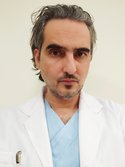
Stavros Dimopoulos
Acute kidney injury
Cardiopulmonary exercise testing
Cardiopulmonary rehabilitation programs
Chronic heart failure
ECMO
ICU sonography
Intensive care unit acquired weakness
Left ventricle assist device
Neuromuscular electrical stimulation
Pulmonary arterial hypertension
Sepsis
Dr. Stavros Dimopoulos received his PhD degree from the Medical School of the National Kapodistrian University of Athens (UOA), Greece, in 2008. Since 2016, he has been working as a Cardiac Surgery ICU Consultant at Onassis Cardiac Surgery Center in Athens, Greece and he is now the Cardiac Surgery ICU Director. He is the former President and founding member of the Greek Society of Ergospirometry, Exercise & Rehabilitation, Co-Director of the ECMO Center (ELSO) at Onassis Cardiac Surgery Center and member of scientific societies including ESICM/EACPR/Heart Failure Association/ESC/ELSO. He is currently reviewer for more than 60 international scientific peer-reviewed journals, for NIHR and member of the Editorial Board of more than 30 international peer-reviewed open-access scientific journals. He has coauthored in more than 90 papers in international peer-reviewed refereed journals, 9 chapters in books, and more than 150 abstracts in international congresses.
Prof. Stefano Palomba is from the Unit of Gynecology at Sant’ Andrea Hospital of Rome, University Sapienza of Rome, Italy. Prof. Palomba serves as the scientific secretary for various national and international congresses, meetings, and workshops in the gynecological endocrinology field. He is an active member of several national and international scientific societies. Prof. Palomba also contributes as a reviewer and commentator for numerous international scientific journals, showcasing his dedication as a researcher in the field of gynecologic endocrinology and publishing over 250 scientific articles in the most prestigious international journals with high impact factors.
Dr. Sumanta Saha is a physician and epidemiologist in infectious disease epidemiology, diabetes in children, and pregnancy. His publications include several first-authored publications on observational studies and evidence-synthesis research. He has experience peer-reviewing and handling several manuscripts in different journals.
Dr. Tony Kleijn is a pathology resident at the University Medical Center Groningen (UMCG). He is on the board of the National Pathology Assistants Association (LPAV) to represent the interests of Dutch AIOS. He is also involved in various training and international research projects at the UMCG.
Dr. Vishal G. Shelat is an Associate Professor in the Department of General Surgery, at Tan Tock Seng Hospital, Singapore 308433, Singapore. He is a general surgeon trained in open, laparoscopic, and robotic hepatobiliary and pancreatic surgery, and diagnostic foregut and hindgut endoscopies. He is involved in undergraduate and postgraduate teaching and training. He has also received several hospital, cluster, and medical school-level various teaching awards. He serves as a program director for the PGY1 program and Director of the Surgical Science Training Centre at Tan Tock Seng Hospital. He is involved in various surgical quality and patient safety initiatives. He has conducted local primary care and public seminars/forums to raise cancer awareness and drive patient-centric value-driven safe surgical care. He has a keen interest in healthcare ethics and is an active member of institutional clinical research and ethics committees. He is registered as a medical expert witness and renders medico-legal assistance upon request. He has published >230 papers and >10 book chapters. He has contributed to many international guidelines, delivered >30 oral invited or nominated international lectures, and serves on the editorial board of international journals.

Dr. Weiqing Wan
Brain Function
Brain tumors
Glioma
Meningioma
Pituitary Adenoma
Vestibular Schwannona
Dr. Weiqing Wan is a clinical front-line doctor, received his M.D. from Capital Medical University. Adhere to the combination of specific work and learning experience, actively write and apply for projects, presided over and participated in 2 national natural surface projects, and presided over and participated in a number of Sino-US cooperation projects, "863" program.
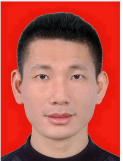
Weiren Luo
Experimental Pathology
Ecological pathology
Medical ecology tree
Nasopharyngeal carcinoma ecology
Dr. Weiren Luo is a professor at the Cancer Research Institute within the Department of Pathology at the Second Affiliated Hospital of Southern University of Science and Technology, as well as at the Shenzhen Third People's Hospital, both located in Shenzhen, China. He is also affiliated with the National Clinical Research Center for Infectious Diseases in Shenzhen. Dr. Luo received his Ph.D. from Southern Medical University and conducted research as a Visiting Scholar at the University of California/Lawrence Berkeley National Laboratory, United States.
His primary focus lies in the field of cancer ecology and pathology. He is credited with introducing the concept of human ecological pathology and has developed the cancer ecology tree and the nasopharyngeal carcinoma ecology theory. Notably, during the initial stages of the COVID-19 pandemic, Dr. Luo and his team documented the world's first case of critical COVID-19 biopsy, which revealed the presence of pulmonary fibrosis and microthrombosis.
His research interests span a wide spectrum, including medical and surgical emergencies in nasopharyngeal carcinoma ecology, ecological pathology, medical ecology trees, and experimental pathology.

William C. Cho
Cancer biomarkers
Cancer diagnosis
Cancer treatment predication
High-throughput cancer diagnosis
Dr. William Cho is a biomedical scientist at QEH. His main research interests have been focusing on cancer studies utilizing high-throughput technologies to discover biomarkers for cancer diagnosis, treatment prediction, and prognostication. He is a Chartered Scientist granted by the Science Council (UK), a Registered Chinese Medicine Practitioner (HK), a Guest Professor of several universities, and a Fellow Member of several institutes, including the Institute of Biomedical Science (UK), the Hong Kong Institute of Biomedical Science, and the Hong Kong Society for Molecular Diagnostic Sciences. Dr. Cho has published over 500 peer-reviewed papers, including Lancet, Lancet Oncology, Advanced Science, Nature Communications, Clinical Cancer Research, Clinical Chemistry, Annals of Oncology, PNAS, etc., covering cancer biomarkers, proteomics, microRNAs, Chinese medicine, and plenty of books including "MicroRNAs in Cancer Translational Research", "An omics Perspective on Cancer Research", "Supportive Cancer Care with Chinese Medicine", “Drug Repurposing in Cancer Therapy: Approaches and Applications," etc.
Prof. Wing Nang Albert Leung was the former director of the School of Chinese Medicine at the Chinese University of Hong Kong. He is currently a Professor of Clinical Practice at Lingnan University, Hong Kong. He is the author or co-author of over 150 refereed publications. His major research interests are photodynamic therapy (PDT) using herbal compounds as photosensitizers, the pharmacology of anticancer Chinese medicinal materials, the integration of Chinese and Western medicine in clinical applications, and the application of Chinese medicine in gerontology and elderly care.

Xiaofeng Zhao
Complex gynecological surgeries performed laparoscopically
Complex hysteroscopic procedures
Gynecological oncology
Pelvic anatomy
Pelvic floor dysfunction
Surgeries for large uteri
Prof. Xiaofeng Zhao, at the Obstetrics and Gynecology Hospital of Zhejiang University School of Medicine, specializes in pelvic anatomy and complex gynecological surgeries performed laparoscopically. His expertise includes surgeries for large uteri, pelvic floor dysfunction, gynecological oncology, and complex hysteroscopic procedures. He has introduced new anatomical structure models such as the 'double hammock' for pelvic floor support and the 'envelope' membrane anatomy of the lower abdomen and pelvis. Furthermore, he has modified existing procedures based on these anatomical structures.
Dr. Xufeng Zhang is from the First Affiliated Hospital of Xi'an Jiaotong University, the Department of Hepatobiliary Surgery, and the Institute of Advanced Surgical Technology and Engineering. His research topics are oncology, surgery, hepatobiliary surgery, and transplantation.
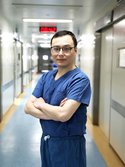
Yang Shen
Comprehensive diagnosis and treatment of gynecological tumors
Conventional/single-hole laparoscopic surgery
female pelvic floor repair and urinary incontinence treatment
Prof. Shen Yang, at Zhongda Hospital affiliated to Southeast University, specializes in gynecological cancer-related diseases. His expertise includes comprehensive diagnosis and treatment of gynecological tumors, especially conventional/single-port laparoscopic surgery for endometrial cancer, cervical cancer, early ovarian cancer, R0 resection of advanced ovarian cancer, pelvic exenteration for recurrent cervical cancer, and female pelvic floor repair and urinary incontinence treatment. His research interests include the pathogenesis of ovarian/fallopian tube tumors, the reversal of ovarian cancer drug resistance, the relationship between environmental endocrine disruptors and gynecological diseases, the innovation and improvement of gynecological endoscopy technology, the cross-modal navigation control surgical robot for uterine fibroids and polyps, and biomedical synthesis based on computer-aided drug design.

Ying Fu
Superficial ultrasound
Abdominal ultrasound
Elasticity and ultrasound intervention
Transrectal prostate ultrasound
Ultrasound contrast imaging
Ultrasound image artificial intelligence recognition
Ultrasound medicine
Vascular ultrasound
Dr. Ying Fu is a clinical front-line doctor, received his M.D. from Peking University Health Science Center. Adhere to the combination of specific work and learning experience, actively write and apply for projects, presided over and participated in 2 national natural surface projects, and presided over and participated in a number of Sino-US cooperation projects, "863" program.

Yong Hai
Biomechanics
Bone
Degenerative disc disease
Disc replacement
Scoliosis
Spine deformity
Spine surgery
Prof. Dr. Yong Hai is head of the Department of Orthopedics at Beijing Chao-Yang Hospital, Capital Medical University, Beijing, China. Prof. Dr. Hai has engaged in basic and clinical research and practice of orthopedic spinal surgery for more than 30 years and is proficient in the diagnosis and treatment of various spinal diseases, especially complex and difficult spinal deformities, with unique and rich diagnostic and therapeutic experience. Prof. Dr. Hai was honored with numerous awards, including the Lancet Award, Beijing Gold Medal Doctor, China Health Communication Ambassador, and the Top Ten Public Welfare Figures of Chinese Physicians. Prof. Dr. Hai published more than 300 professional academic articles (including 150 SCI articles, with a total IF of 500+) and edited or translated nine academic monographs. He has also obtained more than ten national invention and utility model patents.

Yunlei Li
Artificial intellegence
Clinical bioinformatics
Data mining
Deep learning
Machine learning
Dr. Yunlei Li studied data mining and bioinformatics at Delft University of Technology (TUD) under the supervision of Prof. Marcel Reinders and Prof. Lodewijk Wessels. She conducted her internship at the Netherlands Cancer Institute (NKI) under the supervision of Prof. Laura van ‘t Veer on breast cancer research. In 2004, she obtained her MSc degree with honors (cum laude). She performed her doctoral research at TUD with Prof. Marcel Reinders and Prof. Dick de Ridder and obtained her Ph.D. in 2010 on “Exploiting noisy and incomplete biological data for prediction and knowledge discovery.” Since 2011, Dr. Li has been working at the Erasmus Medical Center (EMC) on multiple basic cancer research projects as well as healthcare-oriented projects covering a wide range of diseases (incl. leukemia, aneurysm, pancreatic cancer, lung cancer, glioblastoma, and melanoma) and bioinformatics applications.
Currently, she is leading the machine learning and artificial intelligence research line in the Department of Pathology and Clinical Bioinformatics at EMC. Her research focuses on designing and applying novel artificial intelligence methods (data mining, machine learning, and deep learning) in translational and clinical research settings to integrate and exploit multi-dimensional patient data (e.g., DNA, RNA, protein, image, clinical) for clinical cancer research and clinical trials in order to gain insight into the diseases, discover biomarkers, improve diagnosis accuracy, and stratify personalized treatments.
Ammar Musawi, BDS, MDS (Prosthetic Dentistry), MPH (Dental Emphasis), is the Assistant Dean of the Preclinical Education and Simulation clinic at the Missouri School of Dentistry & Oral Health (MOSDOH). He oversees D1 and D2 students’ preclinical education, MOSDOH’s Kirksville campus facilities, and supervises MOSDOH’s preclinical faculty.
Dr. Musawi received his dental degree from the University of Baghdad (BDS), his Master of Dental Surgery (MDS) in Prosthetic Dentistry from the University of Malaya, and his Master of Public Health (MPH) dental emphasis from ATSU.
Employed with ATSU-MOSDOH since 2014 as the first full-time faculty, his focus in higher education includes developing and implementing new and effective learning methods, assessment and educational research, restorative dentistry research, and other research topics.
Dr. Musawi was honored with the Elsie Gaber Compassion and Integrity Award, the MOSDOH Student Governance Association (SGA) Excellence in Teaching Award, the MOSDOH Teaching Award, a Certificate of Appreciation in recognition of his service during the COVID-19 pandemic, and the American Dental Association (ADAE) Leadership Institute certificate.
Prof. Andrew Smith’s research covers the areas of occupational and health psychology, with a major emphasis on well-being.
Specifically, he has conducted extensive research on the non-auditory effects of noise on cognition and health. In addition, he conducts research on stress and fatigue in both the workplace and life in general. His interests in health psychology cover two main themes: health-related behaviors (effects of nutrition, caffeine, and chewing gum on behavior) and minor illnesses (psychosocial risk factors for susceptibility to colds and influenza; effects of upper respiratory tract infections on mood and cognition).
Dr. Hideaki Kawabata is a clinical gastroenterologist and now the Director of Kawabata Medical Clinic, as well as a specialist and councilor in the Japanese Society of Gastroenterology and the Japan Gastroenterological Endoscopy Society and a specialist in the Japanese Society of Internal Medicine and the Japanese Society of Gastrointestinal Cancer Screening.
Lawrence A. Lavery, D.P.M., M.P.H., is a professor in the Department of Plastic Surgery at UT Southwestern Medical Center. He is also the Medical Director of the Diabetic Limb Salvage (DLS) program at Parkland Memorial Hospital and works as part of the DLS team at William P. Clements Jr. University Hospital. Dr. Lavery’s clinic and research interests involve diabetic foot complications, infections, and wound healing.
Dr. Lavery completed his undergraduate studies at Indiana University and then earned his medical degree at the Rosalind Franklin University of Medicine and Science, Dr. William Scholl College of Podiatric Medicine in Chicago. He completed a residency in podiatric medicine and surgery at the University of Texas Health Science Center in San Antonio, where he also earned a Master's degree in Public Health.
He is board-certified by the American Board of Podiatric Surgery and a Fellow of the American College of Foot and Ankle Surgeons and the Royal College of Surgeons (Glasgow).
Prior to joining UT Southwestern in 2010, Dr. Lavery was a professor in the Department of Surgery at the Texas A&M Health Science Center College of Medicine, Scott and White Medical Center in Temple, Texas; the University of Texas Health Science Center in San Antonio; and Loyola University Medical Center in Maywood, Illinois. He has also served as a staff podiatrist at VA hospitals in San Antonio and Maywood, Illinois.
Dr. Lavery’s research group has published over 320 peer-reviewed scientific papers and textbook chapters. They have received research funding from the National Institutes of Health, the Agency for Health Care Policy and Research, the American Diabetes Association, the Veterans Administration, the Qatar National Research Foundation, the American College of Foot and Ankle Surgeons, the American Podiatric Medical Association, and private industry.
Dr. Rodrigo Suarez is from the Department of Urology at the Faculty of Medicine and Medical Center at the University of Freiburg. His research topics are oncology, surgery, and urology.
Dr. Roy Hajjar is from the Department of Surgery at the Faculty of Medicine at the Université de Montréal. His research topics are surgery and gastrointestinal surgery.
Samuel Cohen is a fourth-year medical student at the Stanford School of Medicine. His research interests include examining the intersection of technology and medicine in order to optimize patient care. His most recent work aims to improve patient education materials using artificial intelligence. He has published more than 30 manuscripts in the past three years and looks forward to continuing to advocate for patients via his research throughout his career as an aspiring ophthalmologist.
Stuart S. Winter, MD, is the Chief Research Officer at Children's Hospitals and Clinics of Minnesota. A Midwesterner since the early 1960s, Stuart grew up near Milwaukee, WI. He graduated from Lawrence University in Appleton, WI (1983) with a BA in biology and attended medical school at the University of Wisconsin-Madison (1988). Stuart completed his pediatric residency at the University of New Mexico (1991) and his sub-specialty fellowship in Hematology/Oncology at Duke University Medical Center (1995). He has been continuously board-certified in Pediatric Hematology-Oncology since 1994. Stuart's areas of interest are molecular oncology, immunotherapy, clinical trials, research ethics, and randomized longitudinal studies that benefit all children.









